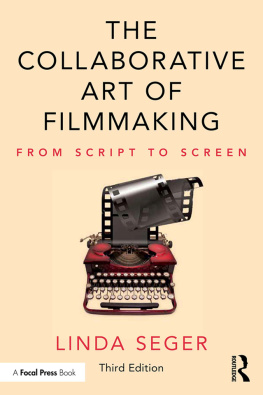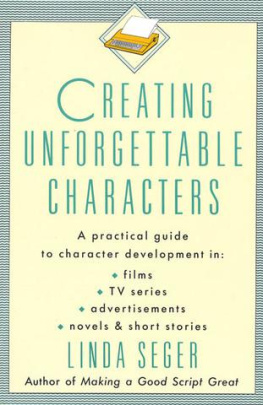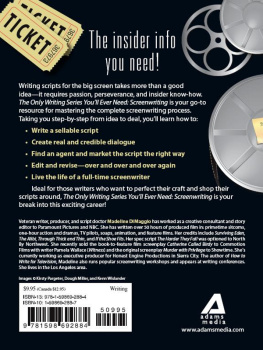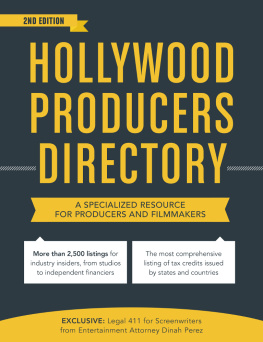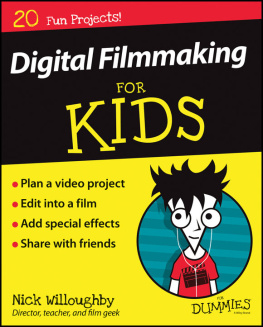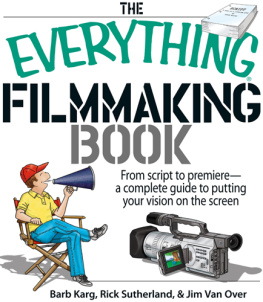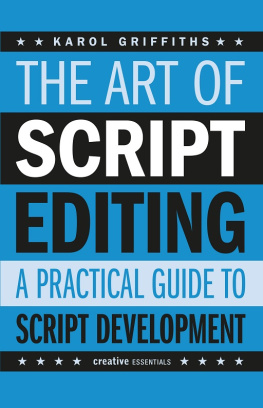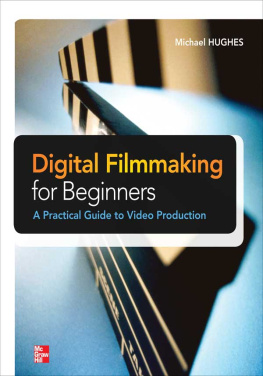The Collaborative Art of Filmmaking
The Collaborative Art of Filmmaking: From Script to Screen explores what goes into the making of Hollywoods greatest motion pictures. Join veteran script consultant Linda Seger as she examines contemporary and classic screenplays on their perilous journey from script to screen. This fully revised and updated edition includes interviews with over 80 well-known artists in their fields including writers, producers, directors, actors, editors, composers, and production designers. Their discussions about the art and craft of filmmaking including how and why they make their decisions provides filmmaking and screenwriting students and professionals with the ultimate guide to creating the best possible blueprint for a film and to also fully understand the artistic and technical decisions being made by all those involved in the process.
Linda Seger is the author of fifteen books (many spanning several editions and numerous foreign translations). Nine of these books are on screenwriting and filmmaking, including the best-selling Making a Good Script Great, Creating Unforgettable Characters, and Writing Subtext . She has consulted on over 2,000 scripts including over 50 produced feature films and over 35 produced television projects, and has given seminars in over 30 countries around the world.
The Collaborative Art of Filmmaking
From Script to Screen
Third Edition
Linda Seger
Third edition published 2019
by Routledge
2 Park Square, Milton Park, Abingdon, Oxon OX14 4RN
and by Routledge
52 Vanderbilt Avenue, New York, NY 10017
Routledge is an imprint of the Taylor & Francis Group, an informa business
2019 Linda Seger
The right of Linda Seger to be identified as the author of this work has been asserted by her in accordance with sections 77 and 78 of the Copyright, Designs and Patents Act 1988.
All rights reserved. No part of this book may be reprinted or reproduced or utilised in any form or by any electronic, mechanical, or other means, now known or hereafter invented, including photocopying and recording, or in any information storage or retrieval system, without permission in writing from the publishers.
Trademark notice : Product or corporate names may be trademarks or registered trademarks, and are used only for identification and explanation without intent to infringe.
First edition published by Holt, Henry & Company, Inc. 1994
Second edition published by Lone Eagle Publishing Company 2004
Library of Congress Cataloging-in-Publication Data
Names: Seger, Linda, author.
Title: The collaborative art of filmmaking: from script to screen /
Dr. Linda Seger.
Description: Third edition. | New York: Routledge, Taylor & Francis Group,
2019. | Includes bibliographical references and index.
Identifiers: LCCN 2018032053 | ISBN 9780815382980 (hardback) |
ISBN 9780815382997 (paperback) | ISBN 9781351207072 (e-book)
Subjects: LCSH: Motion picturesProduction and direction.
Classification: LCC PN1995.9.P7 S38 2019 | DDC 791.4302/32dc23
LC record available at https://lccn.loc.gov/2018032053
ISBN: 978-0-8153-8298-0 (hbk)
ISBN: 978-0-8153-8299-7 (pbk)
ISBN: 978-1-351-20707-2 (ebk)
Typeset in Warnock Pro
by Apex CoVantage, LLC
Dedicated to
Pamela Jaye Smith,
mythologist, writer, producer, director, consultant,
colleague, team-teacher, friend, confidante, and very wise
advisor when I need one.
Contents
Guide
Thank you to:
My assistant, Katie Gardner, for typing and feedback and good advice and laughter and reliability!
My long-time researcher, Sue Terry, for checking all the details and tracking down important information.
My readers Michael Braun, Devorah Cutler-Rubenstein, Dominick Duda, Cathleen Loeser, Lisa Joy Sampson, and Pamela Jaye Smith for all their good feedback.
Louisa Velis, Assistant to Ron Howard, for her generosity, help, and all her kindness.
Riley Quinonez, for stepping in at the last minute and typing the last edits when Katie hurt her wrist, and for doing the Index.
Mara Purl of Haven Books for the initial idea for the cover and to Devorah Cutler-Rubenstein for her additional ideas and the red typewriter, and the cover design from Rogue Four Design .
My team at Taylor & Francis: Sheni Kruger, John Makowski, Jacqueline Dias, Sarah Pickles, and Naomi Hill.
And always thank you to my dear husband Peter for his support and care, and all the happiness that comes from him, even in the middle of writing a book.
After 35 years of working in the film business, it occurred to me that I had learned a few things that would be of interest to others. Perhaps it was time to do a new edition of the book, From Script to Screen , which was first published in 1994, with a second edition in 2004. In 2014, I asked my co-author Edward Whetmore (known as Edd he told me he took the war out of his name, so I will be referring to him always as Edd) how he would feel if I wrote the third edition. He told me that was just fine. We agreed that both of our names would be on the cover, but I would have full creative control over what went into this new edition. Two years later, in December 2016, Edd died, and that further motivated me to look for a publisher who would be interested in a third edition.
For the first edition, I conducted 70 interviews with some of the top names in the industry. I spoke with Ridley Scott between takes on his current movie, had a two-hour lunch with Ron Howard in his office over very good Chinese food, and sipped fabulous cappuccino with composer Bill Conti in the house that Rocky built. Edd joined me in the living room of Lawrence Kasdens home, had coffee with Leonard Nimoy in his home office with the fireplace blazing had a long lunch with Mary McDonnell at the St. James Club, and appetizers with Peter Weir in his suite at the Bel Air hotel. It was a wonderful and heady experience to meet these people, to spend time with their ideas, and to experience their graciousness and generosity. It took over a year to get the interviews and countless phone calls and letters (all before e-mail was popular and easy.)
In the days when it was easier to actually meet these people in person, I was privileged to do so. Now that there is so much great information researching online, I found that many answers to the questions that I wanted to ask about the filmmaking process could be found someplace in the plethora of wonderful interviews, master classes, articles, and even documentaries. I also was able to do several personal interviews for this edition as well.
I had two criteria in mind as I wrote this edition: I wanted to quote filmmakers who are masters of their art and craft, and who have a body of work that shows their experience and their skills over many decades. Many of these filmmakers are still working, such as directors Ridley Scott and Ron Howard, and producer Brian Grazer. Some of the people I interviewed in the first edition have died. I so valued their input and wanted to keep their quotations because these are people who have greatly influenced this industry, such as director Robert Wise, actor Robin Williams, writer Frank Pierson, and production designer Ferdinando Scarfiotti.
As I began to research, I felt invigorated realizing that making this information available in one book could help filmmakers. For the first edition, I had taken at least one class in each area explored in each chapter. In this edition I included my own knowledge about these art forms, gathered from my work as a script consultant on about 100 produced films. Through my work, I have observed the struggles and processes of many filmmakers and have added personal stories about these experiences.

